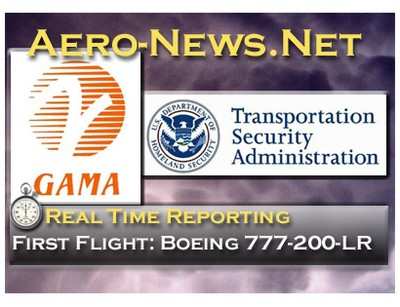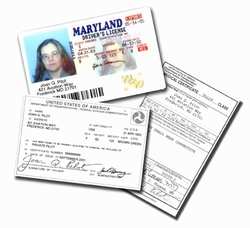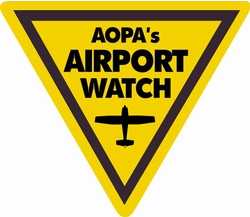"Industry Working Hard To Secure Airports"
The General Aviation Manufacturers Association (GAMA) Monday
commented on the unclassified, confidential government aviation
security overview published two weeks ago.

"GAMA and the rest of the aviation industry work closely with
all federal security agencies, including the Federal Bureau of
Investigations (FBI) and the Department of Homeland Security
(DHS)," said Ron Swanda, GAMA's Interim President. "Today's press
reports would have the reader believe that nothing has been done
regarding general aviation security. Nothing could be further from
the truth. The report referenced in the press is a result of
industry working with federal security agencies in sharing threat
information. In fact, this assessment was completed at the request
of and released to the civil aviation community."
The actions the general aviation industry has taken since
September 11, 2001 have been well coordinated with all federal
security agencies. As an example, last year the Transportation
Security Administration (TSA) issued general aviation airport
security guidelines, which tailored security around the broad range
of small general aviation airports. "The government recognized that
one size does not fit all in security and determined that for
general aviation a set of government endorsed, industry best
practices would be best suited," said Swanda.
 Similarly, regulatory changes have
addressed specific areas of general aviation including mandating
passenger screening for large charter operations, background checks
and registering of non-US flight students, and a requirement for
pilots to carry a government-issued photo ID.
Similarly, regulatory changes have
addressed specific areas of general aviation including mandating
passenger screening for large charter operations, background checks
and registering of non-US flight students, and a requirement for
pilots to carry a government-issued photo ID.
"We will continue to work with the federal government to improve
general aviation security based on risk based threat-vulnerability
assessments," said Swanda.
GAMA noted that the following changes have been made to general
aviation security:
New security procedures, including passenger screening, has been
mandated by the Transportation Security Administration (TSA) for
charter operations involving aircraft weighing more than 12,500
lbs.
Foreign registered general aviation aircraft must be approved by
the TSA and submit a complete passenger manifest before they are
allowed to enter the United States.
All non-U.S. citizens seeking flight training in the U.S. on
aircraft weighing more than 12,500 pounds must first undergo a TSA
background check. All flight students must register with the TSA
when starting training.
The federal government, working with aviation community, has
released general aviation airport security guidelines designed to
establish best practices for general aviation security.
 Industry has developed an Airport
Watch program at general aviation airports and details about the
program have been mailed to every active pilot in the U.S. TSA
staffs a toll-free hotline 24 hours a day, 7 days a week
(1-866-GA-SECURE) for reporting suspicious activity at general
aviation airports.
Industry has developed an Airport
Watch program at general aviation airports and details about the
program have been mailed to every active pilot in the U.S. TSA
staffs a toll-free hotline 24 hours a day, 7 days a week
(1-866-GA-SECURE) for reporting suspicious activity at general
aviation airports.
The Federal Aviation Administration (FAA) now requires that
pilots carry a government-issued photo ID along with their pilot 's
license whenever they operate an aircraft. The federal government
has also searched the FAA 's Airmen and Aircraft registries for
persons believed to be a security risk.
GAMA has developed guidelines to help aircraft sellers identify
unusual financial transactions that could indicate attempts to
launder money via the purchase of aircraft, or otherwise suspicious
customer behavior.
 ANN's Daily Aero-Linx (05.06.25)
ANN's Daily Aero-Linx (05.06.25) ANN's Daily Aero-Term (05.06.25): Ultrahigh Frequency (UHF)
ANN's Daily Aero-Term (05.06.25): Ultrahigh Frequency (UHF) ANN FAQ: Q&A 101
ANN FAQ: Q&A 101 Classic Aero-TV: Virtual Reality Painting--PPG Leverages Technology for Training
Classic Aero-TV: Virtual Reality Painting--PPG Leverages Technology for Training Airborne 05.02.25: Joby Crewed Milestone, Diamond Club, Canadian Pilot Insurance
Airborne 05.02.25: Joby Crewed Milestone, Diamond Club, Canadian Pilot Insurance





